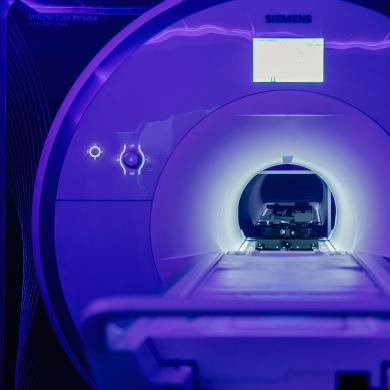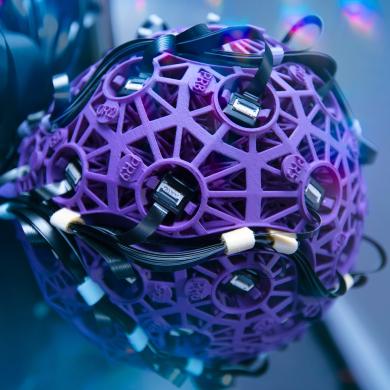
Center for Neurocognition and Behavior
One of three research pillars of the Wu Tsai Institute, the Center for Neurocognition and Behavior advances scientific understanding of human cognition by linking the inner workings of the brain to the outer ways we behave in the world.
Grounding neuroscience in behavior — how we attend, make decisions, communicate, navigate, and get along — helps answer fundamental questions about why the brain works like it does and what it is built for. Outward behavior also reveals our inner limitations — losing focus, forgetting, poor decisions, and interpersonal conflicts. Identifying the brain systems responsible for these cognitive gaps will help lay a blueprint for how to train the mind to reach our full potential.

The brain and behavior can be directly measured, but only through their combination can the mind be revealed. New technologies and data analyses are making this possible with ever greater precision and insight. The Center for Neurocognition and Behavior is a world-class home for developing and applying these innovations, driving a fundamentally new, more integrated understanding of human cognition.
Kia Nobre, Director of the Center for Neurocognition and Behavior + Wu Tsai Professor of Psychology
Goals and methods of the Center
We perform experiments that link dynamic measurements of brain activity and connectivity to complex behaviors during cognitive tasks
We deploy the latest tools and techniques for non-invasive imaging of the healthy human brain and for invasive recordings of patients with brain implants
We use safe and ethical interventions including neurofeedback, stimulation, and pharmacology to modulate brain activity and observe disruptions or improvements in behavior
We work with engineers and clinicians to develop new brain-computer interfaces to access and harness brain states to control future technologies
Connections across the Institute
The Center for Neurocognition and Behavior provides a unique and complementary perspective on cognition that mutually informs the work of the other centers. For example, studying the brain and behavior of adults equips the Center for Neurodevelopment and Plasticity with a developmental capstone to decipher how cognitive abilities emerge across the lifespan. Deeper knowledge of complex behaviors and their underlying brain systems sets benchmarks and suggests mechanisms for the Center for Neurocomputation and Machine Intelligence to incorporate into models of cognition. The complementary and interdependent research in the three centers embodies the Institute’s interdisciplinary approach to understanding human cognition.
Facilities and resources in the Center
The Center for Neurocognition and Behavior makes available state-of-the-art equipment for measuring the healthy human brain and behavior in action. These resources invite ambitious ideas and promote bold exploration in pursuit of a better understanding of cognition. BrainWorks, an expansive facility for human neuroscience at 100 College Street, housing the latest technologies for safely measuring and manipulating brain activity with unparalleled precision (e.g., fMRI, MEG, OPM, EEG, fNIRS, TMS, sleep staging) and for capturing naturalistic behavior (e.g., VR, eye tracking, body tracking, psychophysiology, and psychophysics). As a self-operated facility, undergraduates, graduate students, and postdocs gain first-hand experience and strengthen their research skills with training and support.



Recent discoveries in the Center
Humans can learn motor skills without actually doing the movements - just imagining a movement can lead the brain to make unconscious predictions. Read the article in the Proceedings of the National Academy of Science.
Your ability to pay attention can be accurately predicted by the connectivity of brain regions measured using fMRI. Read the article in Nature Human Behavior.
First impressions and intuitive feelings about other people can be modified in light of new information even weeks to months later. Read the article in Psychological Science.






